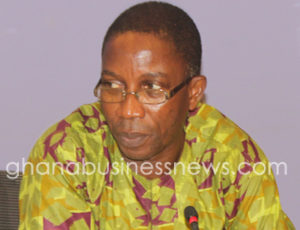
The Coordinator of Third World Network-Africa Dr Yao Graham warns that Ghana will not reap the full benefits of its young oil and gas industry if there is no plan beyond the revenue it generates, to make the industry a part of Ghana’s medium and long term development strategy.
Speaking at the premiere of a documentary on Ghana’s oil and gas industry produced by the Institute of Financial and Economic Journalists (IFEJ), Dr Graham said that while oil and gas would bring revenue, the multiplier effects of Ghana’s hydrocarbon resources and their potential for economic diversification should not be missed.
“Revenue is important. But in other places where natural resources have made contribution to development, in addition to optimizing the revenue – getting as much revenue as possible as the first step, and making the best use of the revenue as the second step – there is also the third crucial one: how does the actual activity of producing the natural resource, dynamize other economic activities, dynamize the creation of skills, and dynamize enterprise building?”
The oil and gas documentary which was produced by IFEJ in collaboration with the German Development Corporation (giz) and the Swiss State Secretariat for Economic Affairs (SECO), showed how the high expectations and fanfare surrounding Ghana’s discovery of oil is now being impacted by resource governance issues and Ghana’s failure to have made the most of previous natural resources.
In the Western Region, livelihoods of farmers and fisher folk are being impacted by gas flaring, oil rig lights and their attraction of fish, vessel collisions and other issues.
It also showed there are also no clear exclusive zones for fishers, making the areas around rigs and FPSOs the unofficial exclusive zones, a situation described as “a serious policy failure” by Mr Emmanuel Kuyole, Africa Deputy Director at the Natural Resource Governance Institute (NRGI).
Dr Graham alluded to an economic setback in the Gold Coast in the 1920s, during which time a drop in the price of cocoa which accounted for about 80 per cent of exports, prompted the colonial governor Sir Gordon Guggisberg, to remark that the country should not put all its eggs in one basket.
However, nearly a century later, not much has changed.
“Ghana now is probably just as commodity export-dependent as we were in Guggisberg’s time which is quite a startling situation,” Dr Graham said.
“Until we actually transition from being simply exporters of raw materials and begin to see the multipliers that these industries can bring – whether in terms of local content, job creation, linkage building, processing and so on – we’re not going to optimize the value of all our non-renewable resources; because when the non-renewable resources are gone, there should be other things left.”
By Emmanuel Odonkor
